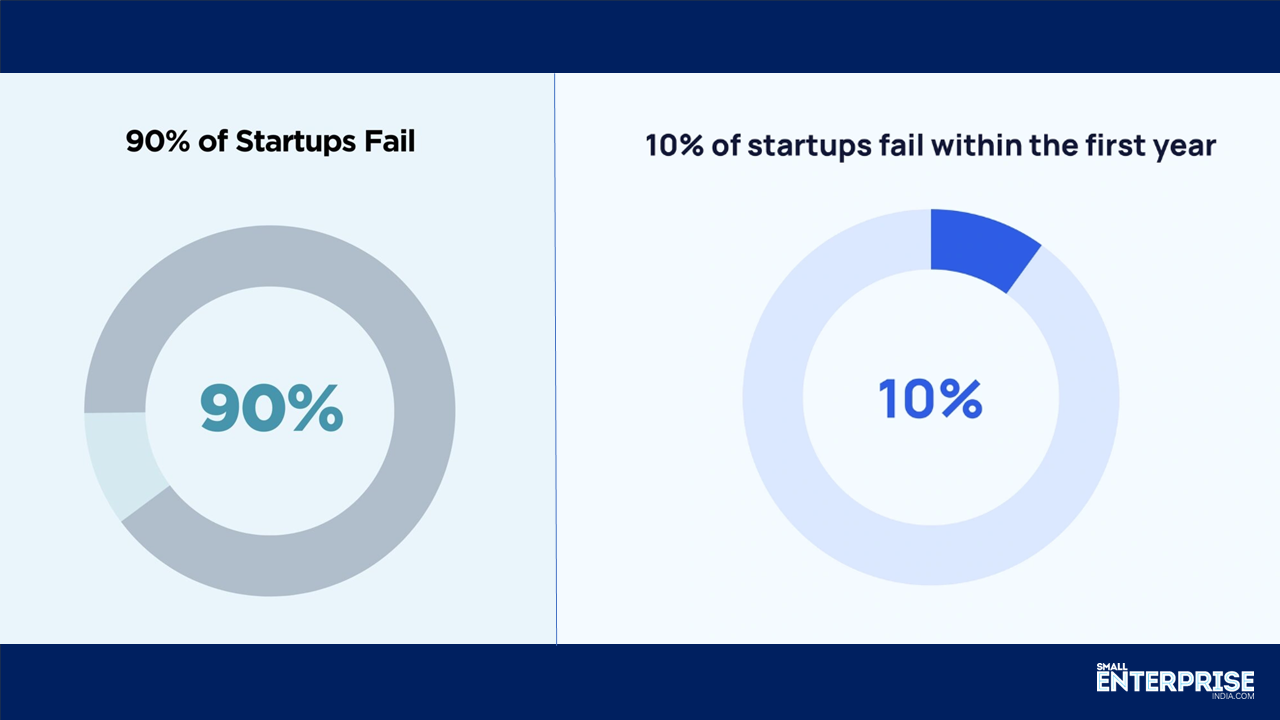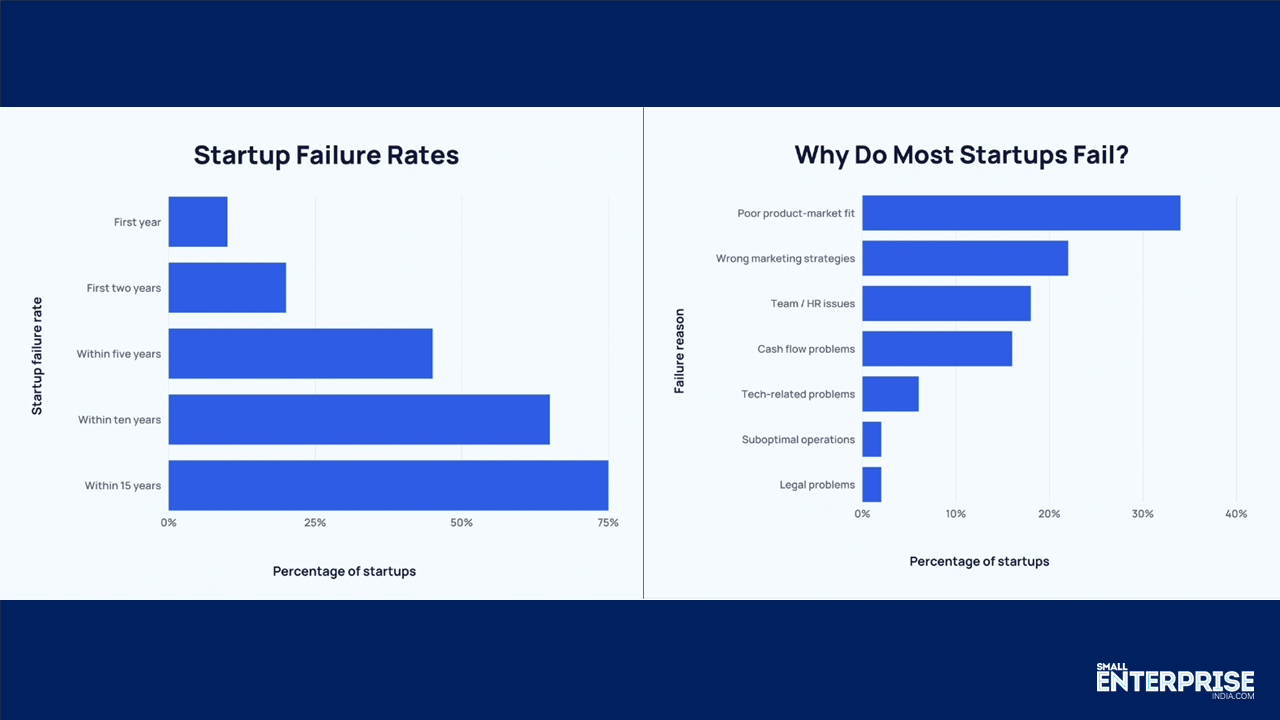
In the dynamic landscape of business, where innovation is the heartbeat of progress and risk-taking is the currency of success, the role of the entrepreneur stands distinct. Entrepreneurship embodies the spirit of initiative, creativity, and resilience. It’s not just about managing a business; it’s about creating something from nothing, about transforming dreams into reality. In the pursuit of this lofty goal, there arises a crucial question: Why an entrepreneurship course? To answer this question, we must delve into the essence of entrepreneurship itself and distinguish it from traditional business administration.
Business Administration, a stalwart discipline in the realm of commerce, equips individuals with the skills to manage and operate existing businesses. Business administrators are adept at overseeing day-to-day operations, managing resources, and steering the ship toward predefined objectives. They are the guardians of stability and efficiency within an organisation, ensuring that the machinery of business runs smoothly.
In contrast, entrepreneurship is a voyage into uncharted waters. It’s about embracing uncertainty, challenging the status quo, and carving out new pathways where none existed before. Entrepreneurs are not content with maintaining the status quo; they aspire to disrupt it. They are visionaries who spot opportunities amidst chaos and dare to seize them, regardless of the odds.
While both business administration and entrepreneurship courses share common ground in terms of foundational business knowledge, the key differentiator lies in their focus and orientation. Business administration courses emphasise the art of management within established frameworks. They teach students how to optimise existing processes, allocate resources efficiently, and mitigate risks within the confines of a structured environment.

On the other hand, entrepreneurship courses are a breeding ground for innovation and experimentation. They cultivate the entrepreneurial mindset – a potent cocktail of creativity, resilience, and strategic thinking. Entrepreneurship education goes beyond the traditional confines of business management; it fosters an ecosystem where bold ideas can flourish and unconventional approaches are celebrated.
One of the primary reasons why every aspiring entrepreneur should consider an entrepreneurship course is the holistic preparation it provides. Unlike traditional business administration programs that primarily focus on managerial skills, entrepreneurship courses offer a comprehensive toolkit tailored specifically for the challenges of starting and scaling a new venture.
Entrepreneurship courses cover a wide array of subjects ranging from ideation and opportunity recognition to business planning, fundraising, and marketing. They expose students to real-world case studies, entrepreneurial success stories, and hands-on projects that simulate the complexities of launching a startup. Moreover, entrepreneurship courses often incorporate mentorship programs and networking opportunities, enabling students to learn from seasoned entrepreneurs and build invaluable connections within the startup ecosystem.
Furthermore, entrepreneurship education instills a mindset of agility and adaptability – essential traits in today’s rapidly evolving business landscape. It teaches aspiring entrepreneurs how to navigate uncertainty, pivot in response to market feedback, and turn setbacks into opportunities for growth. In essence, an entrepreneurship course prepares individuals not just to manage a business but to lead it fearlessly into the unknown.
Another compelling reason to pursue an entrepreneurship course is its role in mitigating startup failures. According to statistics, a significant percentage of startups fail within the first few years of operation. While there are myriad factors that contribute to this sobering reality, inadequate preparation ranks among the top culprits. Many aspiring entrepreneurs dive headfirst into the entrepreneurial journey without fully understanding the intricacies of business ownership and management. As a result, they encounter unforeseen challenges and pitfalls that could have been preempted with proper education and training.

By undergoing an entrepreneurship course, aspiring entrepreneurs can significantly reduce the likelihood of failure by equipping themselves with the knowledge, skills, and mindset necessary for success. From crafting a robust business plan to navigating legal and regulatory hurdles, entrepreneurship education provides a solid foundation upon which aspiring entrepreneurs can build their ventures with confidence.
Why do Startups Fail?
The startup landscape is often romanticised with tales of overnight success and billion-dollar valuations. However, the harsh reality is that the majority of startups face an uphill battle, with around 90% of them ultimately meeting failure. Moreover, a staggering 10% of startups fail within their first year of operation. This begs the question: Why do most startups fail?

At the core of startup failures lies the absence of a crucial element: product-market fit. Many startups plunge into the market with innovative ideas or solutions without adequately validating whether there’s a genuine demand for their offerings. Without a deep understanding of their target audience’s needs, preferences, and pain points, startups risk developing products or services that fail to resonate with customers. Consequently, they struggle to gain traction, acquire customers, and achieve sustainable growth.
Another common pitfall that contributes to startup failures is the formulation and implementation of a poor marketing strategy. Even if a startup has a stellar product or service, it’s futile if no one knows about it. Many startups underestimate the importance of marketing and fail to invest sufficient time, resources, and expertise in developing an effective marketing strategy. This results in limited visibility, low brand awareness, and an inability to reach and engage their target audience effectively.
Furthermore, cash flow problems often sound the death knell for startups. Despite securing initial funding, many startups struggle to manage their finances efficiently, leading to cash burnout and financial instability. Whether it’s overspending on unnecessary expenses, underestimating costs, or failing to generate sufficient revenue, cash flow mismanagement can quickly cripple a startup’s operations and force it to shut down prematurely.
In addition to these primary reasons, other factors such as poor leadership, inadequate team dynamics, fierce competition, regulatory challenges, and macroeconomic fluctuations also contribute to startup failures.

The relatively high startup failure rates underscore the formidable challenges inherent in entrepreneurship. While the journey of building a startup is fraught with risks and uncertainties, understanding the root causes of failure can empower aspiring entrepreneurs to navigate these challenges more effectively. By prioritising product-market fit, developing robust marketing strategies, and maintaining sound financial management practices, startups can increase their chances of survival and thrive in the competitive business landscape.
Business Administration Course
A Business Administration course serves as a comprehensive foundation for individuals aspiring to navigate the intricate world of business management. Within this program, students delve into a diverse array of key focus areas essential for steering organizations toward success.
Management Principles: Central to the curriculum are management principles that illuminate the art and science of effective leadership. Students learn how to organize resources, motivate teams, and make strategic decisions to achieve organizational goals.
Finance and Accounting: Understanding financial principles is paramount in any business endeavor. Business Administration courses cover topics such as financial analysis, budgeting, and accounting practices, equipping students with the skills to interpret financial data and make informed financial decisions.
Marketing and Sales: The ability to identify market opportunities and effectively promote products or services is crucial for business success. Students explore marketing strategies, consumer behavior, and sales techniques to develop comprehensive marketing plans that drive growth and profitability.
Operations Management: Efficient operations lie at the heart of every successful business. Students learn how to optimize processes, manage supply chains, and streamline operations to enhance productivity and minimize costs.
Human Resource Management: People are the most valuable asset in any organization. Business Administration courses cover topics such as recruitment, training, performance management, and employee relations, ensuring students are equipped with the skills to foster a productive and engaged workforce.
Strategic Planning: Long-term success requires a clear vision and effective strategic planning. Students learn how to analyze market trends, assess competitive landscapes, and develop strategic plans that position organizations for sustainable growth and adaptability in dynamic environments.
Entrepreneurship and Innovation: While entrepreneurship courses focus specifically on starting and growing new ventures, Business Administration programs often include modules on entrepreneurship and innovation to foster a culture of creativity and entrepreneurship within established organizations.
In essence, a Business Administration course offers a comprehensive toolkit encompassing various disciplines crucial for effective business management. By mastering these key focus areas, students are equipped with the knowledge, skills, and mindset necessary to navigate the complexities of the business world and drive organisational success.
Entrepreneurship Course
An Entrepreneurship Course is designed to cultivate the skills, mindset, and knowledge necessary for individuals to embark on the journey of starting and growing their own ventures. Here are the key areas covered in such a course, along with their importance for aspiring entrepreneurs:
Idea Generation and Opportunity Recognition: Entrepreneurship begins with identifying gaps or opportunities in the market. Courses teach aspiring entrepreneurs how to generate and evaluate business ideas, conduct market research, and recognize opportunities for innovation and disruption.
Business Planning and Strategy: Crafting a comprehensive business plan is essential for guiding the trajectory of a new venture. Entrepreneurship courses delve into the intricacies of business planning, helping students outline their vision, mission, target market, competitive advantage, and strategies for growth.
Financial Management and Funding: Understanding financial concepts and managing resources effectively is critical for the success of any business. Courses cover topics such as budgeting, financial forecasting, pricing strategies, and sources of funding, empowering aspiring entrepreneurs to make informed financial decisions and secure funding for their ventures.
Marketing and Sales: Without effective marketing and sales strategies, even the most innovative products or services may struggle to gain traction in the market. Entrepreneurship courses explore various marketing channels, customer acquisition techniques, branding strategies, and sales tactics to help entrepreneurs attract and retain customers.
Legal and Regulatory Considerations: Navigating the legal and regulatory landscape is paramount for ensuring compliance and mitigating risks. Courses provide guidance on business registration, intellectual property protection, contracts, taxation, and other legal aspects relevant to entrepreneurship.
Operations and Resource Management: Efficiently managing operations and resources is essential for optimizing productivity and minimizing costs. Courses cover topics such as supply chain management, inventory control, process optimization, and technology integration, enabling entrepreneurs to streamline operations and maximize efficiency.
Risk Management and Resilience: Entrepreneurship inherently involves risk, and navigating uncertainties is part of the journey. Courses teach aspiring entrepreneurs how to assess and mitigate risks, develop contingency plans, and cultivate resilience in the face of challenges and setbacks.
Innovation and Creativity: Innovation lies at the heart of entrepreneurship, driving differentiation and competitive advantage. Courses foster a culture of creativity, encouraging entrepreneurs to think outside the box, experiment with new ideas, and embrace a mindset of continuous innovation.
Networking and Mentorship: Building a strong network of mentors, advisors, and peers is invaluable for entrepreneurial success. Courses provide networking opportunities, connect students with experienced entrepreneurs and industry experts, and facilitate mentorship programs to support aspiring entrepreneurs on their journey.

The importance of an entrepreneurship course for aspiring entrepreneurs cannot be overstated. Beyond imparting practical skills and knowledge, such courses foster an entrepreneurial mindset characterized by creativity, resilience, and a willingness to take calculated risks. By equipping individuals with the tools and confidence to pursue their entrepreneurial aspirations, entrepreneurship courses play a pivotal role in shaping the future of innovation and economic growth.
In conclusion, the decision to pursue an entrepreneurship course is not just a choice; it’s a commitment to a journey of self-discovery, innovation, and impact. In a world where change is the only constant and uncertainty looms on the horizon, entrepreneurs stand as beacons of resilience and hope. By embracing the transformative power of entrepreneurship education, aspiring entrepreneurs can embark on their entrepreneurial odyssey with clarity, purpose, and conviction. So, why an entrepreneurship course? Because it’s not just a course; it’s a catalyst for realising dreams, unleashing potential, and shaping the future of business.
Unlock Your Potential: Discover How Entrepreneurship Education Shapes Successful Careers.
Participate at ThriveNation 2024 Roadshow across 7 vibrant cities. Here are the venues and dates for your reference:
- Chennai: Madras Management Association – April 2nd, 2024
- Hyderabad: T-Hub – April 4th, 2024
- Bangalore: Federation of Karnataka Chamber of Commerce and Industry – April 6th, 2024
- Mumbai: Dadar Club – April 10th, 2024
- Ahmedabad: Ahmedabad Management Association (AMA) – April 12th, 2024
- Delhi: PHD Chamber of Commerce – April 16th, 2024
- Kolkata: Calcutta Management Association (CMA) & Bengal Chamber of Commerce – April 18th, 2024
Join us at THRIVENATION 2024, India’s Premier 7-City E-School Roadshow, starting 2nd April from Chennai!
